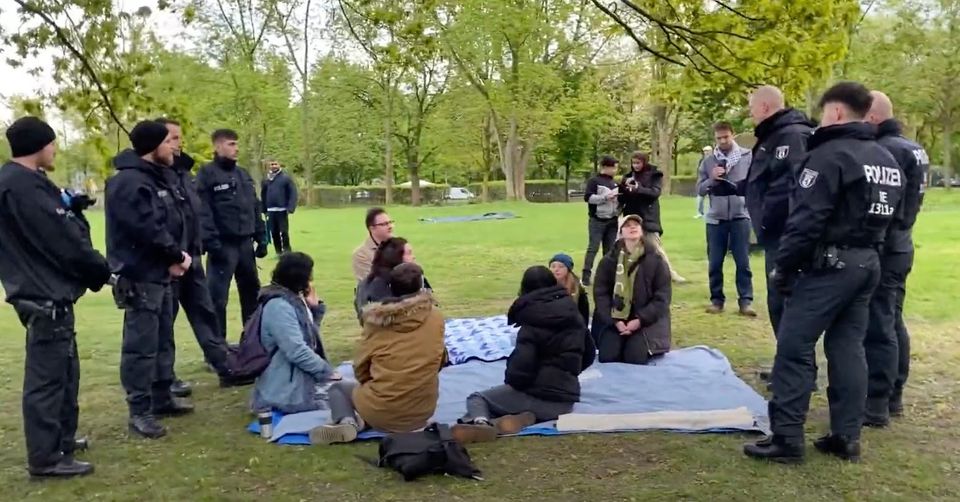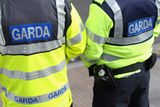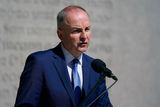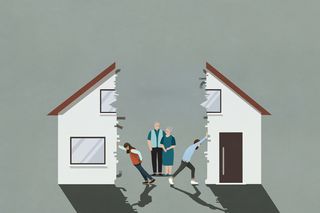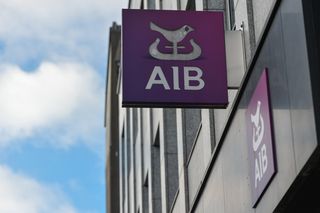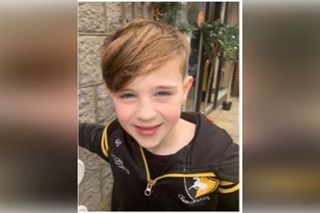Berlin police ban Irish protesters from speaking or singing in Irish at pro-Palestine ‘ciorcal comhrá’ near Reichstag
General secretary of Conradh na Gaeilge brands move ‘disgraceful’
Irish protesters told they are not allowed to speak Irish by German police at pro-Palestine protest camp near the Reichstag in Berlin
Irish protesters were told they are not allowed to speak or sing in Irish at the pro-Palestine protest camp near the Reichstag in Berlin.
About 40 activists were attending the ‘ciorcal comhrá’ (conversation circle) event as Gaeilge when large numbers of police arrived and told them to stop and move on.
They also sang songs in English and Irish, including traditional favourite Óró Sé Do Bheatha Abhaile.
Police broke up the Irish language event attended by about 40 Irish people living in the German capital, under rules that only allow English and German, and in some cases Arabic, to be used during protests.
German authorities have been increasingly restricting pro-Palestine protests against the government’s support for Israel amid its war in Gaza. The ban on languages other than English and German, in Berlin without a designated translator present to interpret for police is seen as mainly targeting Arabic speakers, and therefore Palestine supporters.
Irish is an official language of the EU, with equal status to the 23 other official languages of the EU since January 2022.
Irish woman Caoimhe McAllister, who was attending the protest, said the group of approximately 40 people gathered at 6pm at the protest camp in front of the German parliament, the Reichstag, on Friday evening, April 19.
Berlin police at the Irish Bloc Ciorcal Comhrá
“At that camp, especially in the last days of Ramadan, there was a crackdown on any Arabic-speaking, including arresting someone,” she said.
“So we decided to highlight what we see as a really worrying human rights concern. We just had to highlight this by speaking in Irish.”
Ms McAllister has been living in Berlin for 14 years and is originally from Belfast. She is a member of the Irish Bloc, a group based in Berlin supporting Palestine.
“The police expressed concern that people might be discussing terrorist activity, or what they call incitement to violence,” Ms McAllister said.
"They were worried that we, in Irish, would say something that glorified terrorism or incited violence and therefore we were required to have an interpreter to clarify that for the police officers there.
"And because we didn't have one, we were banned from speaking in Irish.”
Ms McAllister told the Irish Independent there was already a “very heavy police presence” when the group arrived at the camp.
She said they were “immediately stopped” from carrying flags and a handmade banner that said “Saoirse don Phalaistín – Bheirlín” (Freedom for Palestine – Berlin) and police wouldn’t let them “display it as it was too political in nature”.
The meeting was structured by the group as “a discussion” or a “conversation circle plus songs”.
“We decided that we were going to have a small workshop – we had printed out sheets with Irish vocabulary on them, so that was the way to make the event inclusive for people who weren't also fluent Irish speakers,” she said.
"We had pieces of cardboard and markers and we were going to get them to make little signs about peace and human rights translated into Irish.”
Soon after, police arrived and divided the group into smaller groups of five or six people, and made them move away from the camp, as they said the group was too large.
“They told us that if we didn't vacate the vicinity immediately, they would begin arresting us,” Ms McAllister said.
She said the group walked to a nearby museum, and were followed by a large group of police.
Berlin police at the Irish Bloc Ciorcal Comhrá
"They followed us up and down the steps for quite some time. It was very threatening. They were silent, they wouldn't speak to us, they were just following us, maybe 10 or 12 of them in full gear,” she said.
Ms McAllister said the group kept complying with police’s instructions.
“It was very clear that they were waiting on instructions from their superiors. They were filming us very closely,” she said.
“We were very careful about the choice of songs because some rebel songs might have some words in them that might be seen as incitement to violence.
"So we made sure that we didn't do anything that could reflect badly on us. And still, they refused to let us speak. And at this point, it was just pure intimidation,” she added.
She said she feels “shocked” by the experience and “frightened on the behalf of the Muslim friends”.
“This repression is a side effect of the levels of Islamophobia and anti-Arab racism in Germany. It's important to continue to highlight that this is not really a repression of Irish culture. It's the repression of Irish solidarity with Palestine.
“If we had just gathered in a different park at a different time to speak Irish, there wouldn't have been a single cop there.
“They're trying to portray Irish people as terrorist sympathisers in order to repress and silence our solidarity with Palestine and that I find very frightening,” she added.
The Irish Bloc said in a statement that “this action interferes with our fundamental rights as European citizens to assemble and speak our native language.”
We need your consent to load this Social Media content. We use a number of different Social Media outlets to manage extra content that can set cookies on your device and collect data about your activity.
The group said in its statement that the actions of the police amounted to intimidation and that Irish people are all to familiar with having their language repressed, adding: “We are painfully aware that if we were not a predominantly white-Irish group, this situation would have mostly likely unfolded very differently.”
Berlin police confirmed to the Irish Independent that there is a restriction “in that speeches can only be made in German and English and at certain times also in Arabic, and that no exclamations or chants may be made in Hebrew or Gaelic”.
"This was also the case on Friday. This requirement is always communicated to the people leading the assembly by the police,” a Berlin police spokesperson said.
"The assembly leaders must ensure that these requirements are implemented and that all participants adhere to them. Otherwise, it is a violation of the Berlin Freedom of Assembly Act and an administrative offense.
"The background to the requirement is that a police forecast/assessment for the assembly has shown that there could be speeches or chants glorifying violence with potentially punishable content during the assembly and the police must of course be able to understand them in order to be able to punish them and initiate appropriate investigative proceedings.
"For most languages, this is only possible with interpreters - and if none are available, appropriate conditions can be imposed in advance.
"In principle, the Berlin police must always have a certain lead time to be able to request such police-approved interpreters, as they are not available for all languages at all times,” they added.
Irish freelance journalist based in Berlin Ruairí Casey, who spoke with the Berlin police yesterday, said only English and German can be spoken at the protest camp in front of the Bundestag, and Arabic after 6pm.
“To make sure that there weren't any violations, that there weren't any offences, or potential hate speech and things like this. Anything that isn't English or German or Arabic after 6pm was prohibited,” Mr Casey told the Irish Independent.
General secretary of Irish language promotion body Conradh na Gaeilge, Julian de Spáinn, said it was “disgraceful behaviour by the German police”.
“We can see no reason as to why anyone would be compelled to use only German or English while attending a Palestine solidarity protest in Germany,” Mr de Spáinn said.
"In this case, we have been informed that a number of Irish speakers attending the protest were told that they must not use Irish, an official language of the European Union.
"In our opinion, this is disgraceful behaviour by the German police who, we believe, should uphold EU citizens language rights instead of denying them.
"The Conradh believes that there should be an immediate and permanent ceasefire in Palestine and don’t see any reason people should not advocate for this as Gaeilge.”
Join the Irish Independent WhatsApp channel
Stay up to date with all the latest news
